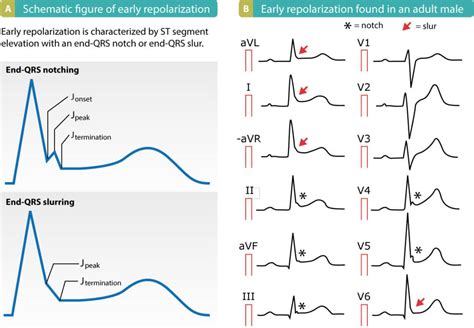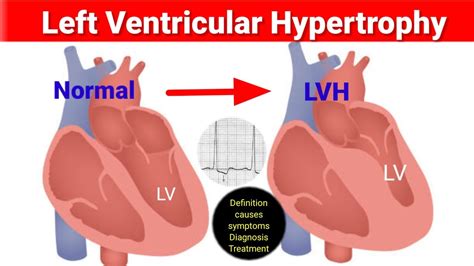lv hypertrophy causes | left ventricular hypertrophy treatment uk lv hypertrophy causes Anything that puts stress on the heart's lower left chamber can cause left ventricular hypertrophy. The lower left chamber is called the . See more 5 minutes. All of our content is approved by our in-house advisory board of experts. Not sure how to make a pet insurance claim? Don't worry - we're here to help. Here are some of the things you can do to speed up your pet insurance claim. We've also included information that you and your vet should be aware of if your pet needs treatment.
0 · qrs widening and repolarization abnormality
1 · nice cks left ventricular hypertrophy
2 · left ventricular hypertrophy treatment uk
3 · left ventricular hypertrophy on ecg
4 · left ventricular hypertrophy nice guidelines
5 · eccentric vs concentric Lv hypertrophy
6 · Lv hypertrophy on echo
7 · Lv hypertrophy criteria
Coated canvas can easily be cleaned with a damp cloth and slightly soapy water. Home remedies such as mink oil, perfume, lcohol-based solutions such as hand sanitizers, leather lotions, cleaners, or chemicals, should not be used on any canvas products. The use of such remedies may cause the canvas to wear adversely and prematurely.
qrs widening and repolarization abnormality
Left ventricular hypertrophy is thickening of the walls of the lower left heart chamber. The lower left heart chamber is called the left ventricle. The left ventricle is the heart's main pumping chamber. During left ventricular hypertrophy, the thickened heart wall can become stiff. Blood pressure in the heart increases. The . See moreLeft ventricular hypertrophy usually develops gradually. Some people do not have symptoms, especially during the early stages of the condition. Left ventricular hypertrophy itself doesn't cause symptoms. But symptoms may occur as the strain on the . See more
nice cks left ventricular hypertrophy
Anything that puts stress on the heart's lower left chamber can cause left ventricular hypertrophy. The lower left chamber is called the . See more
Left ventricular hypertrophy changes the structure of the heart and how the heart works. The thickened left ventricle becomes weak and stiff. This prevents the lower left heart . See more
Things that increase the risk of left ventricular hypertrophy include: 1. Age.Left ventricular hypertrophy is more common in older people. So is . See more
Left ventricular hypertrophy (LVH) makes it harder for the heart to pump blood efficiently. It can result in a lack of oxygen to the heart muscle. It can also cause changes to .
Uncontrolled high blood pressure is the most common cause of left ventricular hypertrophy. Complications include irregular heart rhythms, called arrhythmias, and heart failure. Treatment of left ventricular hypertrophy depends on the cause. Left ventricular hypertrophy (LVH) makes it harder for the heart to pump blood efficiently. It can result in a lack of oxygen to the heart muscle. It can also cause changes to the heart’s conduction system that make it beat irregularly (arrhythmia).
Left ventricular hypertrophy, or LVH, is a term for a heart’s left pumping chamber that has thickened and may not be pumping efficiently. Sometimes problems such as aortic stenosis or high blood pressure overwork the heart muscle.
left ventricular hypertrophy treatment uk
Left ventricular hypertrophy (LVH) is a condition in which an increase in left ventricular mass occurs secondary to an increase in wall thickness, an increase in left ventricular cavity enlargement, or both. Left ventricular hypertrophy (LVH) is an increase in the weight of the left ventricle due to thickening of the left ventricle walls, an increase in space within the left ventricle, or both. The two most common causes of LVH are high blood pressure and aortic stenosis (a heart valve disease). LVH symptoms are usually silent for years until the . What causes left ventricular hypertrophy? A 2022 study suggests that the primary causes of LVH are high blood pressure and aortic valve stenosis, a condition in which the valve leading from. An enlarged or thickened heart — a condition doctors call left-ventricular (LV) hypertrophy — can lead to heart failure. It also may double the risk of dementia and cognitive impairment .

Left ventricular hypertrophy, or LVH, is a term for a heart’s left pumping chamber that has thickened and may not be pumping efficiently. Sometimes problems such as aortic stenosis or high blood pressure overwork the heart muscle.Left ventricular hypertrophy (LVH) is thickening of the heart muscle of the left ventricle of the heart, that is, left-sided ventricular hypertrophy and resulting increased left ventricular mass. Causes.When you have LVH, the muscle wall of the left ventricle becomes thick (hypertrophy) and enlarged. LVH can happen over time if you have certain health conditions that overwork the heart muscle, such as high blood pressure or aortic stenosis.
Uncontrolled high blood pressure is the most common cause of left ventricular hypertrophy. Complications include irregular heart rhythms, called arrhythmias, and heart failure. Treatment of left ventricular hypertrophy depends on the cause.
Left ventricular hypertrophy (LVH) makes it harder for the heart to pump blood efficiently. It can result in a lack of oxygen to the heart muscle. It can also cause changes to the heart’s conduction system that make it beat irregularly (arrhythmia).
Left ventricular hypertrophy, or LVH, is a term for a heart’s left pumping chamber that has thickened and may not be pumping efficiently. Sometimes problems such as aortic stenosis or high blood pressure overwork the heart muscle. Left ventricular hypertrophy (LVH) is a condition in which an increase in left ventricular mass occurs secondary to an increase in wall thickness, an increase in left ventricular cavity enlargement, or both. Left ventricular hypertrophy (LVH) is an increase in the weight of the left ventricle due to thickening of the left ventricle walls, an increase in space within the left ventricle, or both. The two most common causes of LVH are high blood pressure and aortic stenosis (a heart valve disease). LVH symptoms are usually silent for years until the . What causes left ventricular hypertrophy? A 2022 study suggests that the primary causes of LVH are high blood pressure and aortic valve stenosis, a condition in which the valve leading from.
An enlarged or thickened heart — a condition doctors call left-ventricular (LV) hypertrophy — can lead to heart failure. It also may double the risk of dementia and cognitive impairment . Left ventricular hypertrophy, or LVH, is a term for a heart’s left pumping chamber that has thickened and may not be pumping efficiently. Sometimes problems such as aortic stenosis or high blood pressure overwork the heart muscle.
Left ventricular hypertrophy (LVH) is thickening of the heart muscle of the left ventricle of the heart, that is, left-sided ventricular hypertrophy and resulting increased left ventricular mass. Causes.
tudor lady watch

left ventricular hypertrophy on ecg
left ventricular hypertrophy nice guidelines
eccentric vs concentric Lv hypertrophy
Louis Vuitton’s range of phone cases, bumpers and folios for women combine function with fashion. These stylish iPhone accessories are offered in a variety of sizes and signature materials, including models that recall the House’s trunk-making legacy. Smartphone holders on lanyards and finely crafted phone rings complete the selection of .
lv hypertrophy causes|left ventricular hypertrophy treatment uk


























